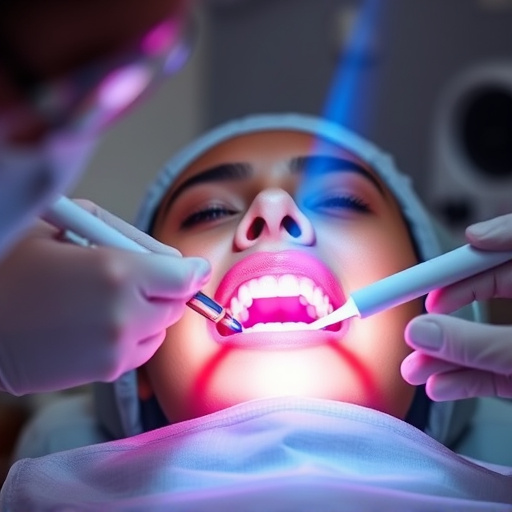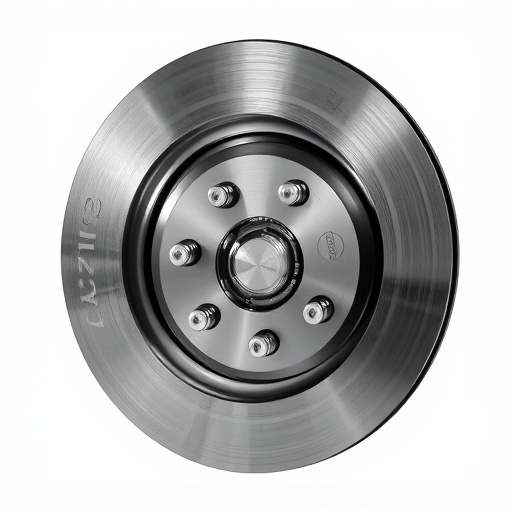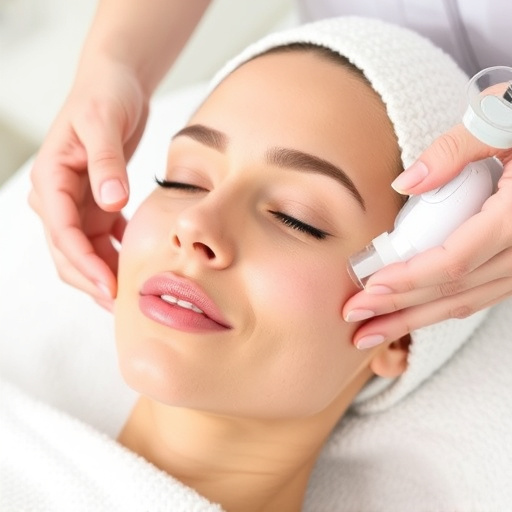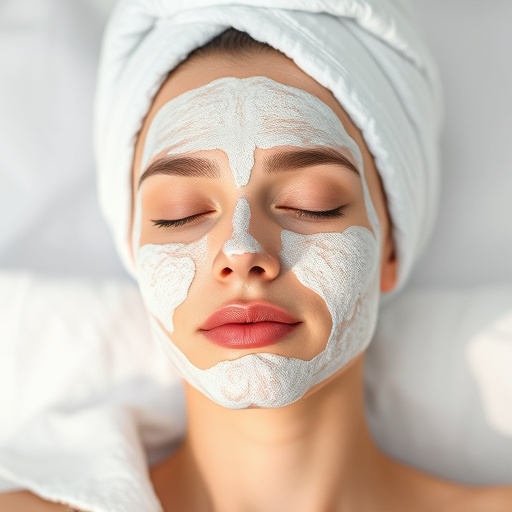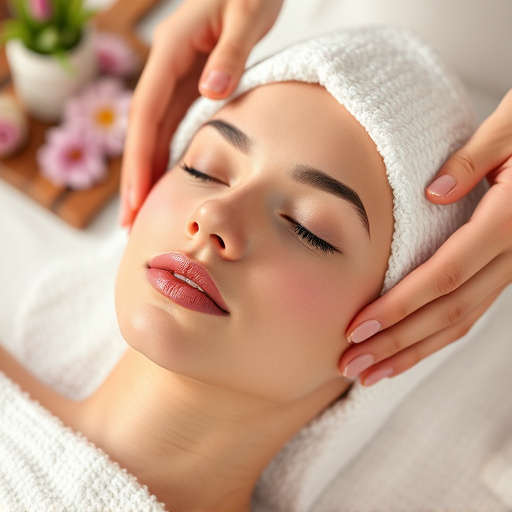Hormonal acne, linked to fluctuating hormone levels like androgens, triggers excessive oil production causing clogged pores and lesions. It requires a specialized approach involving endocrinologists to identify root causes, alongside tailored solutions such as oral contraceptives or spironolactone. When over-the-counter remedies fail, seeking an endocrinologist's expertise is crucial for managing severe or chronic hormonal acne. A comprehensive collaboration between dermatologists and endocrinologists offers a holistic approach integrating medical treatments with aesthetic solutions like microneedling and anti-aging therapies for clearer skin and improved confidence.
“Uncovering the root cause of your persistent acne is crucial for effective hormonal acne treatment. While over-the-counter solutions may provide temporary relief, severe or chronic cases often demand specialized care. This article explores when seeking endocrinologist support is essential for managing hormonal acne. We delve into understanding the complex interplay between hormones and skin health, highlighting triggers that ignite this common condition. By combining insights from healthcare professionals, readers will gain a comprehensive approach to achieving clearer, healthier skin.”
- Understanding Hormonal Acne: Causes and Triggers
- When to Seek Endocrinologist Support for Effective Treatment
- Comprehensive Approach: Collaborating with Healthcare Professionals for Clearer Skin
Understanding Hormonal Acne: Causes and Triggers
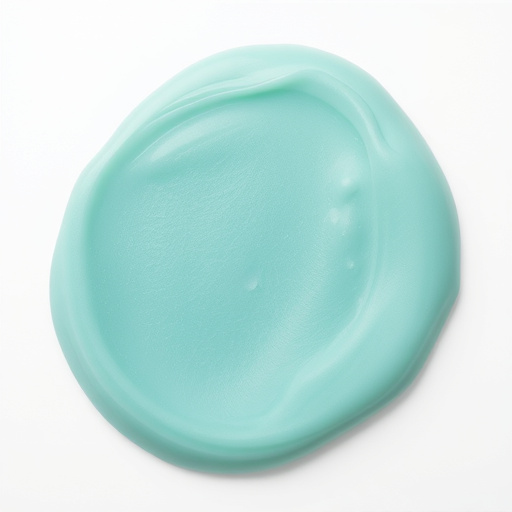
Hormonal acne is a common skin condition that affects many individuals, particularly during certain life stages like puberty, pregnancy, or menopause. It’s important to understand that this type of acne goes beyond simple skin issues; it’s deeply linked to fluctuations in hormone levels. The primary culprits are androgens, male sex hormones that play a significant role in oil production by the sebaceous glands found in the skin. When these hormones become imbalanced, they can trigger excessive sebum (oil) production, leading to clogged pores and the formation of acne lesions.
Various factors can trigger hormonal acne, including stress, rapid weight change, polycystic ovary syndrome (PCOS), thyroid disorders, and certain medications. Unlike regular acne that often responds well to over-the-counter treatments, hormonal acne treatment requires a more nuanced approach. This is where an endocrinologist’s expertise becomes invaluable. They can help identify the root cause of the imbalance, offering tailored solutions such as oral contraceptives, spironolactone, or other medications designed to regulate hormones and subsequently reduce acne severity. Additionally, facial treatments like hydrating facials can provide much-needed nourishment to dehydrated skin, while laser hair removal may be recommended for those dealing with excessive hair growth associated with hormonal shifts.
When to Seek Endocrinologist Support for Effective Treatment
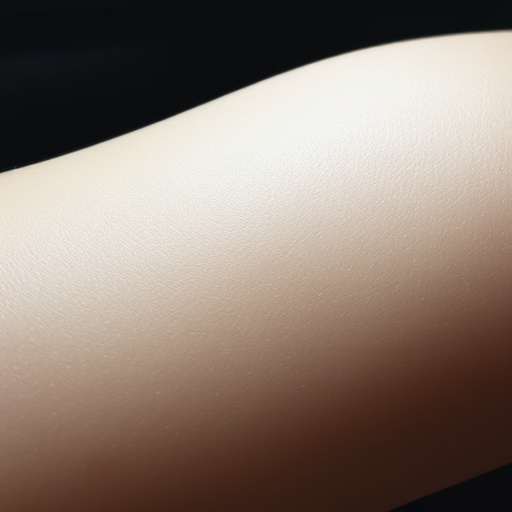
When considering hormonal acne treatment, it’s crucial to recognize when an endocrinologist’s support is essential for effective management. While over-the-counter remedies and topical treatments can offer temporary relief, severe or chronic hormonal acne may require a more comprehensive approach. If your acne persists despite consistent skincare routines, it could be an indication of underlying hormonal imbalances that need professional attention.
Consulting an endocrinologist is particularly important for individuals experiencing cystic acne, as this type often stems from hormonal fluctuations. They can provide specialized care by offering tailored solutions like prescription medications, hormonal birth control options, or even advanced procedures such as microneedling therapy and pore refinement to address specific concerns. Additionally, customized facials can be a part of a holistic approach to managing hormonal acne, promoting skin health and rejuvenation.
Comprehensive Approach: Collaborating with Healthcare Professionals for Clearer Skin

When it comes to tackling hormonal acne, a comprehensive approach is key to achieving clearer skin. This often involves collaborating with various healthcare professionals who can provide a multi-faceted treatment plan tailored to your specific needs. Besides dermatologists, an endocrinologist can play a pivotal role in understanding and managing hormonal imbalances that contribute to acne.
By working together, these experts can integrate medical treatments, such as oral contraceptives or hormone therapies, with other effective solutions like anti-aging treatments, body contouring, and aesthetic procedures. This collaborative effort ensures a holistic approach, addressing both the root causes of hormonal acne and its visible manifestations, ultimately leading to improved skin health and enhanced confidence.
For effective management of hormonal acne treatment, consulting an endocrinologist is often crucial. By collaborating with healthcare professionals, individuals can take a comprehensive approach to addressing the root causes and triggers, leading to clearer skin. This multi-faceted strategy ensures that every aspect of hormonal acne is considered, resulting in improved outcomes and long-lasting clarity.




